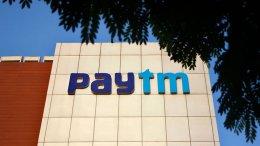If there is one foregone conclusion in India's unpredictable e-commerce space today, it is the merger of the troubled Snapdeal with the heftier—and less troubled—Flipkart. Orchestrated largely by venture capital investors of both companies, as is usually the case in India's consumer internet space, the deal seems likely by the end of this month or early next month, say persons briefed on the negotiations.
Let's take you back in time a little. VCCircle was the first to report in August last year about Snapdeal exploring merger talks with Flipkart. Now, the deal and the negotiations seem to be between SoftBank and Tiger Global, the major investors in Snapdeal and Flipkart, respectively.
Here's what the broad contours of the deal are. SoftBank will buy out Snapdeal shareholders like early investors Kalaari Capital, Nexus Venture Partners, and founders Kunal Bahl and Rohit Bansal, doing an all-stock transaction with Flipkart that values Snapdeal around $1 billion. SoftBank will put in fresh capital in the combined entity and buy a part of Tiger Global’s shares in Flipkart in a secondary transaction. A fortnight ago, VCCircle first reported about Tiger Global partially exiting Flipkart in the latest fundraising round.
The transaction will mean four deep-pocketed, powerful backers for Flipkart: Microsoft, eBay, Tencent and, most notably, SoftBank. The Japanese Internet and telecom conglomerate will hold as much as 15-20% in Flipkart following the merger, fresh capital infusion and secondary share purchase.
Is it an everyone-goes-home-happy scenario? Let's find out.
Advantage Flipkart?
When Tiger Global appointed turnaround man Kalyan Krishnamurthy as CEO of Flipkart earlier this year, it sent a resounding message to the e-commerce firm—the VC firm was now going to tighten its purse strings and even looking to recoup its investments, which stand around $1 billion. Notwithstanding the recent mega cash infusion that came after scouting the market for close to a year, it's a matter of time before funding crunch raises its ugly head at the e-commerce firm again.
With SoftBank on board, Flipkart's funding woes are likely to come to an end. Or it will get a breather long enough to get its act together.
Be that as it may, how can someone in the right frame of mind bet any money on Snapdeal, which has been suffering an existential crisis? A section of people from the industry and observers are still puzzled.
Besides, the two companies' customer and seller base is not mutually exclusive, and areas of synergy are not many.
But Arvind Singhal, chairman and managing director of retail industry consulting firm Technopak, feels it will impart "extra momentum" to Flipkart. “There would be some value (in Snapdeal) in terms of logistics network and distribution centres,†he says.
It remains to be seen how much Flipkart shells out for its ailing rival though, he adds.
“Another advantage could be getting a competitor out and thus bringing down discounting,†Singhal explains.
Will it also help Flipkart work its way around its over-dependence on captive seller WS Retail? Norms stipulate that any e-commerce marketplace cannot source more than 25% of the goods sold on its platform from a single vendor. “That may not be a major trigger for the deal as the norm itself may change in the near future,†he says.
SoftBank factor
Partnering SoftBank is a no-brainer, and that's what's driving Flipkart towards Snapdeal.
“Masa [SoftBank chairman Masayoshi Son] has long-term vision about investing in India and he has his $100-billion Vision Fund,†said a person from within the Indian startup ecosystem. Son has made his India intentions abundantly clear, saying the 21st century belonged to the country. In his recent visit to the country, he reaffirmed his commitment:“I am the man who keeps his word. I am going to surpass my commitment. I have a $100-billion fund,†he had said.
Son clearly seems to be shifting his e-commerce bet to India, and the mighty SoftBank will be a decisive factor in taking the fight to Amazon, which has gained significant traction over the last one year. In fact, it will be reminiscent of SoftBank's biggest e-commerce bet Alibaba, which has fetched the Japanese conglomerate immensely rich rewards.
Which takes us to Alibaba-backed Paytm, now seen as a distant second in the race to buy Snapdeal. That, despite Alibaba holding a stake in Snapdeal and its strong ties with SoftBank.
Persons with knowledge of its game plan say Alibaba has its sights firmly set on the Indian e-commerce market, which is expected to cross $200 billion in gross merchandise volume by 2025, according to a Bank of America Merrill Lynch report.
“This is a big market. They [Alibaba] will do something. Wait and watch,†a venture capitalist with investments in a top Indian unicorn had told VCCircle. Some say this deal, the mother of all mergers in the Indian startup world, may just be Part 1 of a long drawn out game. “Who knows, the next will be Alibaba acquiring Flipkart in 2018-19,†said one of the persons cited above.
Any new player—whether Alibaba or Walmart—that wants to establish itself in the Indian e-commerce market will have to spend $20-30 billion, explained the person. A SoftBank presence in Flipkart will add weight.
We are still early in the game.
Like this report? Sign up for our daily newsletter to get our top reports.






